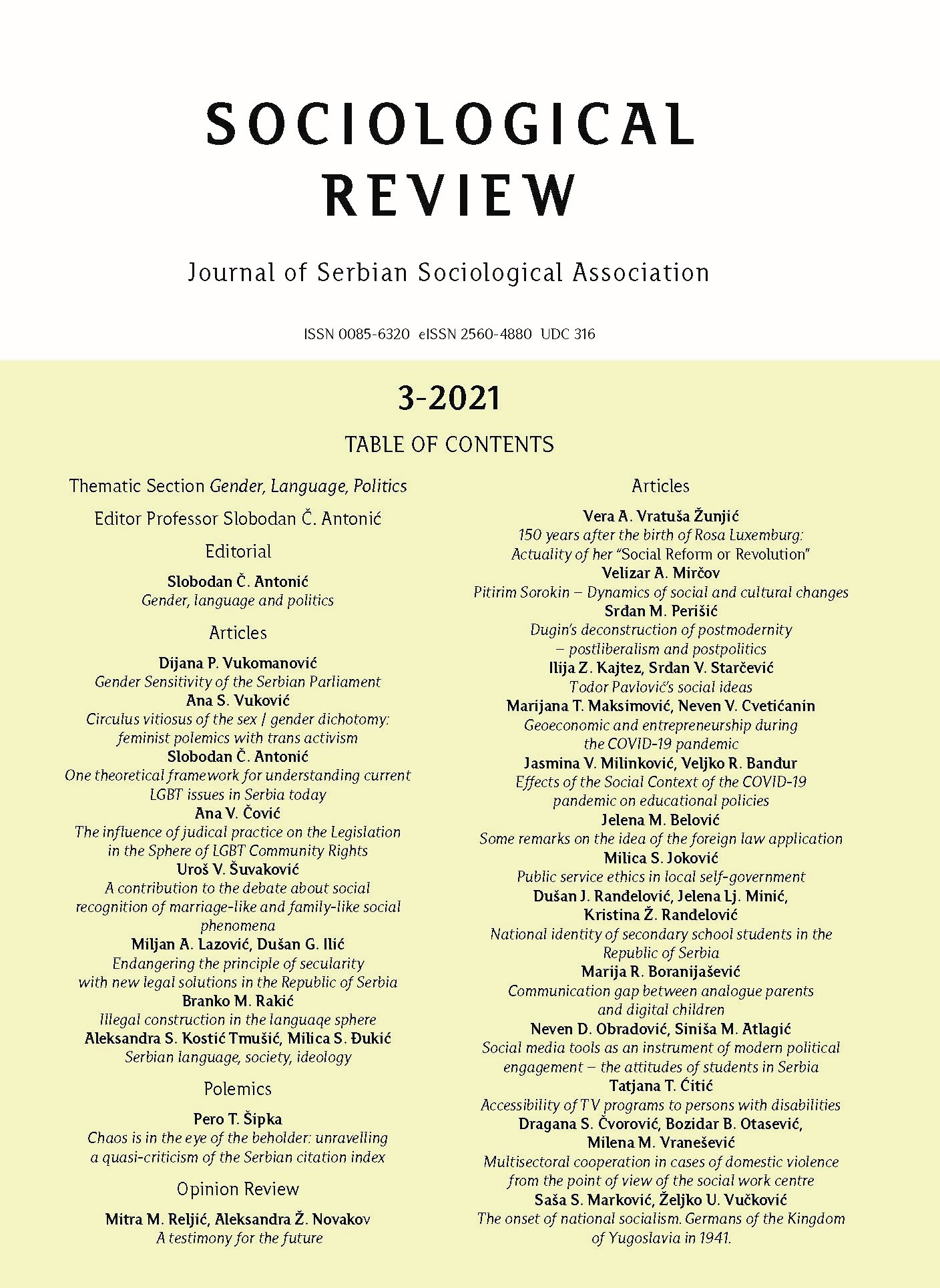The onset of national socialism. Germans of the Kingdom of Yugoslavia in 1941
The onset of national socialism. Germans of the Kingdom of Yugoslavia in 1941
Author(s): Saša S. Marković, Željko U. VučkovićSubject(s): History, Social Sciences, Sociology, Ethnohistory, Political history, Social history, History and theory of sociology, Sociology of Politics
Published by: Српско социолошко друштво
Keywords: Germans;politics;exclusivity;nationalism;
Summary/Abstract: The German community of the Yugoslav Kingdom was, for the most part, concentrated in the territory of today’s Vojvodina. Their centuries-long presence in this area indicates their readiness to live in a multinational environment, but also their ambition to live better than others, both in a cultural and economic sense. The attitude of this community towards the newly formed Yugoslav state was cautious, marked by concern and reserve, but it was not as negative as the one seen in the Hungarian community. The Germans intended to preserve their cultural identity through the organization of associations, and then to found a party. Their ambitions grew with the strengthening of the Third German Reich, when their political manifestation became more provocative and militant.
Journal: Социолошки преглед
- Issue Year: 55/2021
- Issue No: 3
- Page Range: 1165-1182
- Page Count: 18
- Language: English, Serbian

